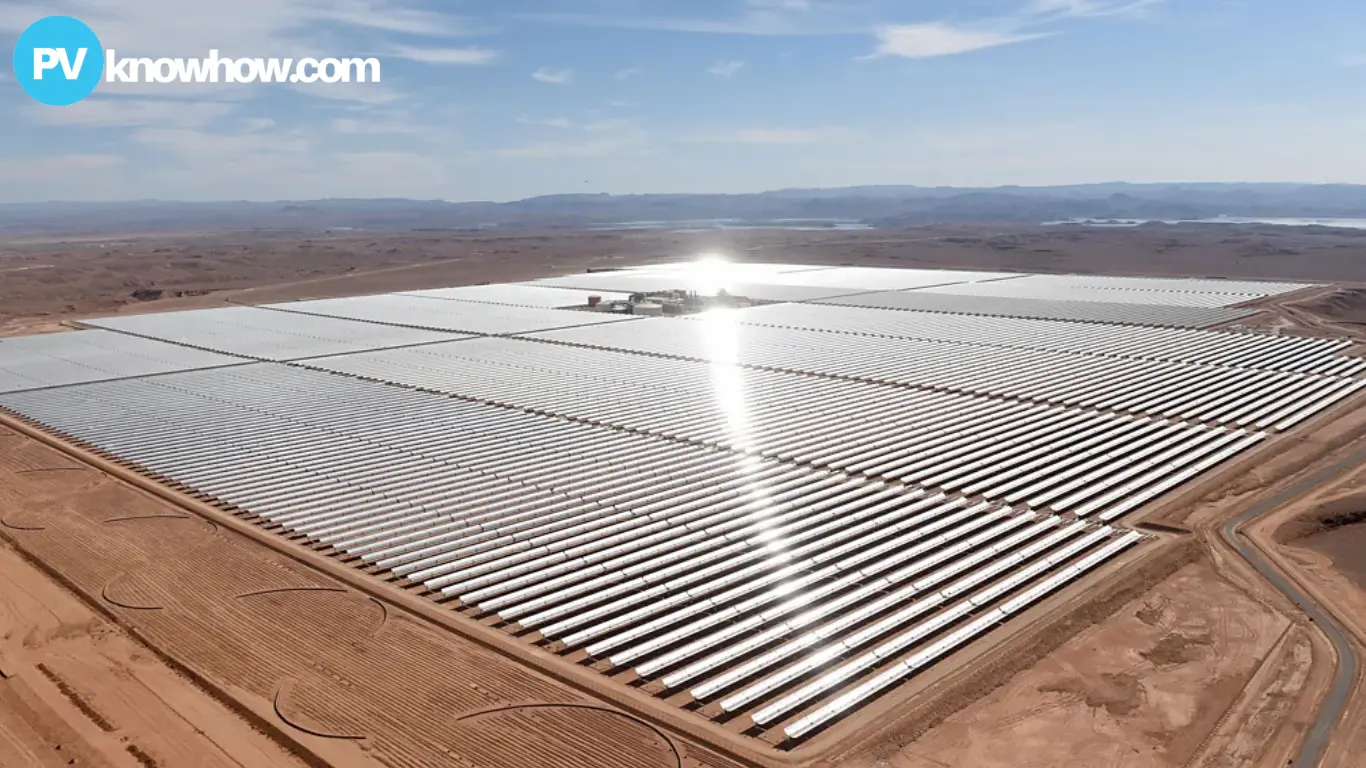According to the International Energy Agency (IEA), Africa — which is often called the "Sun continent" — receives more hours of bright sunlight than any other continent. However, despite holding 60 percent of the world's solar resources, it only contributes one percent to global solar generation capacity.
Solar Power: Mitigating Power Outages in Africa
Many African businesses face power outages which hinder operations, with electricity being a primary obstacle. Improved electricity reliability could have significantly boosted sub-Saharan Africa's GDP growth by two percentage points during 1995-2007. South Africa — previously a benchmark — now also contends with unreliable electricity, contributing to economic contraction in recent quarters due to frequent "load-shedding.”

large solar projects Africa
Solar power is increasingly recognized as a solution. According to the African Solar Industry Association (AFSIA), Africa installed a record amount of photovoltaic (PV) capacity last year. However, this represented only 1% of the global total.
Unlike the global trend where most solar PV is developed by utilities, in Africa, 65% of new capacity over the past two years has come from large companies directly contracting with developers. This decentralized approach could greatly benefit African economies.
South Africa is overcoming energy challenges with a shift to solar and battery storage amid Eskom's coal power issues. Solar panel costs dropped 15% from 2019 to 2023, while battery expenses halved. Industrial consumers save 20-40% by buying electricity from private developers instead of Eskom. As a result, South Africa's solar capacity grew from 2.8 GW to 7.8 GW in two years, significantly reducing power outages in 2024.
Over 400 million Africans Now Enjoy Solar Home Systems
According to The Economist, many African countries face extensive load-shedding issues, which is often worse than those in South Africa. About half of businesses across Africa rely on diesel generators, and Nigeria's generator capacity exceeds its unreliable grid by nearly four times. However, there's notable progress: a significant majority of mines in sub-Saharan Africa are moving towards adopting renewable energy solutions.
In Nigeria, the 2023 phase-out of petrol subsidies has accelerated the shift to cleaner energy sources. Notably, Shell's acquisition of Daystar Power in 2022 — a startup providing solar-power systems to large Nigerian businesses — marks a symbolic step in this transition.
In the past decade, the number of startups in the Distributed Renewable Energy (DRE) sector has grown rapidly. More than 400 million Africans now receive electricity from solar home systems, and the number of mini-grids — mostly solar-powered — built from 2016 to 2020 exceeded ten times those built in the previous five years. In Kenya, DRE firms employ over six times as many people as the largest utility, while in Nigeria, they have generated nearly as many jobs as the oil and gas industry.
Ignite operates across nine African countries, offering a range of solar-powered products from basic lighting panels to irrigation pumps and internet routers. Customers use mobile money to pay for these services through a pay-as-you-go meter, thereby spending an average of $3 per month. This cost is often less than what they previously paid for kerosene and phone charging.
The Role of the World Bank and AfDB
The World Bank and African Development Bank (AfDB) aim to provide electricity to 300 million people in sub-Saharan Africa by 2030. They propose half of these connections be off-grid, citing the high initial costs of solar kits. Subsidies will aid setup costs in remote areas. Stable government policies are key to attracting private investment, ensuring fair profit repatriation and grid expansion.
To electrify the other half, the World Bank suggests extending existing grids — despite challenges with traditional utilities. Many African utilities struggle financially due to insufficient government-mandated tariffs, thereby underscoring the need for structural reforms and policy adjustments for sustainable electricity access continent-wide.
Namibia has shifted towards facilitating private electricity sales into regional pools, thereby altering its role from generator to facilitator. In contrast, Senegal, Mozambique, and Tanzania face bureaucratic obstacles hindering private energy firms. Some countries rely on foreign funding for solar projects due to financial constraints; Mali — despite recent political challenges — collaborates with Rosatom to build West Africa's largest solar plant.
Overall, Africa's solar revolution is mostly characterized by a decentralized and commercially driven approach, potentially reshaping economies and offering global insights.
